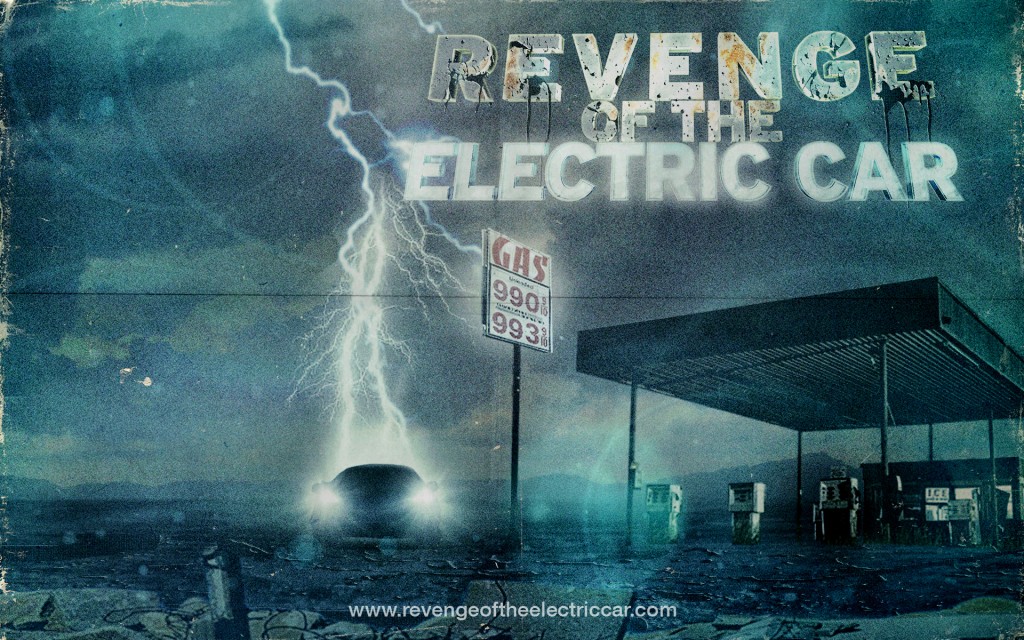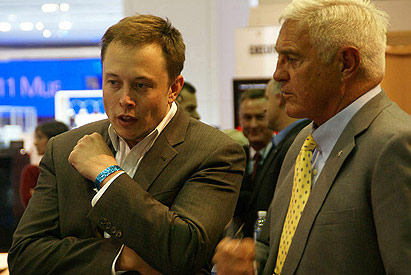From Michael Moore's Roger And Me in 1989 to Chris Paine's 2006 Who Killed The Electric Car?, there's no shortage of documentaries that portray auto-industry executives as incompetent, bumbling, short-sighted, arrogant fools.
So it may be a surprise that merely five years later, two global automakers and one upstart new car company are the heroes of Paine's new documentary, Revenge Of The Electric Car, in the person of one executive at each.
Most startling of all, General Motors--the malevolent villain that heartlessly took back and crushed the EV1 electric cars it had leased to well-connected Californian owners--is a hero in this one.
Footage of visits to GM may be narrated with the phrase "behind enemy lines"--twice--but that's merely for color.
My, how times change.
Three execs...
The film's story line focuses on three industry executives and their struggles to develop and launch what will become the world's first three modern electric cars.

'Revenge of the Electric Car' movie: 2011 Chevrolet Volt production
One is Bob Lutz, the always-colorful, cigar-smoking "car guy" who returned to GM in 2001 to shake up its product development. He is the unlikely champion of the Chevrolet Volt, the 2007 concept that became the world's first modern range-extended electric car.
Then there's Carlos Ghosn, the flinty-eyed CEO who runs both Nissan and Renault, jetting around the world to oversee his empire. He is, as journalist Dan Neil says, the man who doesn't get up in the morning unless he knows how much money it will make him.
Finally, there's Elon Musk, who emerged as CEO of electric-car startup Tesla Motors and steered it through the perilous waters of launching its first vehicle, the 2009 Tesla Roadster.
Musk deals with production delays, quality problems, the economic meltdown, insufficient funding, layoffs, his own divorce, and the stresses of running not only Tesla, but also his rocket company, SpaceX.
...plus Gadget
A fourth character is director Paine's close friend and neighbor, Greg "Gadget" Abbott.

'Revenge of the Electric Car' movie
He's an electric-car converter, but he's largely irrelevant to the main story and serves mostly to add zaniness to the otherwise stolid white-male auto industry world.
Gadget's triumphant New Year's Eve party in a new warehouse garage, with participants in French Empire garb, is an unexpected if cheerful diversion from the story line.
Many years, many billions
The movie covers ground that's familiar to auto journalists, but perhaps not so much to the public at large--and often not at all to electric-car advocates.
The main lesson: It takes several years and billions of dollars (or, for Musk, at least hundreds of millions) to develop modern cars, no matter what they're powered by.

'Revenge of the Electric Car' movie: Elon Musk and Bob Lutz
Revenge of the Electric Car dispenses its auto-industry education in small, digestible doses. Pulitzer-Prize-winning auto writer Dan Neil explains the challenges of the industry, and longtime industry analyst Michelle Krebs adds some cold-headed reality checks.
Despite ominous background music, what little drama there is arises from the economic meltdown of 2008. It almost sank the marginally funded Tesla Motors, and threatened to delay the 2011 Nissan Leaf and 2011 Chevy Volt.
GM's 2009 bankruptcy is covered, but with a light touch--that's an entirely separate movie--and the Volt skates through essentially on time for its production debut late last year.
Missing: the evil villain
Revenge of the Electric Car is a well-told story that should make electric-car advocates happy, and educate its viewers while entertaining them. Its challenge is that, unlike Paine's first film, it has no specific villain.

'Revenge of the Electric Car' movie: Tesla Roadster
Without an evil antagonist, the movie becomes the story of major companies struggling to develop complex, expensive new products that will appeal to customers.
That's not inherently the stuff of high drama.
It is, however, the reality of the auto industry. It has just survived a crushing recession, it faces tighter gas-mileage and emissions regulations, and its executives must make billion-dollar bets with little idea of where gasoline prices will be when those products launch.
Reflecting reality
To its credit, the movie lets Krebs and others point out the essential truth of car buying: It's rarely about being green, but all about the gas price.
If the electric car has indeed gotten its revenge (on GM, presumably), it's because the technology is now, finally, close to ready for mass production--and because champions like Lutz, Ghosn, and Musk have pushed hard to take their companies to the next level.
That's a story worth telling, and Paine does so entertainingly. Even if there's no villain to hiss at.













